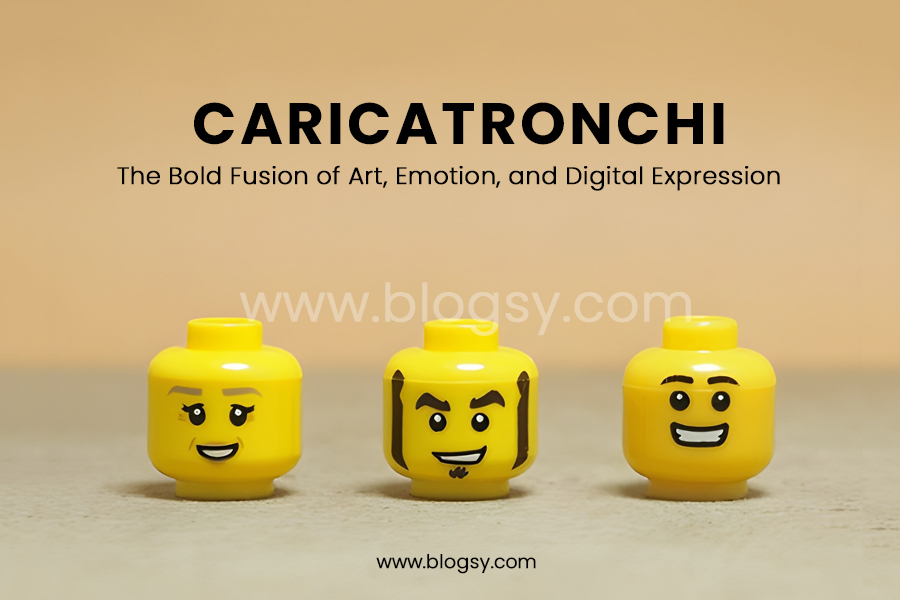
The term cumhuritey represents far more than a linguistic expression. It is a living philosophy that connects people, politics, and principles. Rooted deeply in the transformation of nations like Turkey during the 20th century, cumhuritey symbolizes the evolution from traditional monarchy to modern governance — where citizens are active participants in building their country’s destiny.
In essence, cumhuritey embodies democracy’s heartbeat: collective participation, equality before the law, and respect for freedom. It carries the legacy of centuries of struggle for representation and fairness, marking the beginning of a new era where civic identity and governance intertwine.
Today, cumhuritey remains central to conversations about civic engagement, leadership accountability, and cultural progress. Whether discussed in political classrooms or among modern thinkers, this concept continues to shape how societies define justice, belonging, and national unity.
The Historical Roots of Cumhuritey
From Ottoman Empire to Modern Republic
The emergence of cumhuritey cannot be understood without revisiting its historical roots. It took shape during one of the most transformative periods in history — the decline of the Ottoman Empire and the rise of a new republic in the early 20th century.
Following the devastation of World War I, Turkey, under the visionary leadership of Mustafa Kemal Atatürk, declared itself a republic in 1923. This pivotal moment marked the official birth of cumhuritey as both a political system and a cultural identity.
Atatürk’s reforms introduced secularism, equality, and national sovereignty, rejecting the idea of hereditary power. His vision was not merely political; it was philosophical — an effort to create a nation that placed people, not power, at its core.
The Global Influence of Cumhuritey
Though cumhuritey originated in Turkey, its values resonate universally. The principles of republicanism — public participation, justice, and shared governance — are embraced in various forms worldwide. Countries across Europe, Asia, and the Americas have adopted similar democratic frameworks inspired by the ideals of civic empowerment.
The concept of cumhuritey also played a cultural role, encouraging citizens to see themselves not as subjects of authority but as co-creators of their collective destiny. This shift from obedience to participation remains one of the most defining transformations in modern political thought.
Core Principles That Define Cumhuritey
At its foundation, cumhuritey is guided by timeless values that ensure fairness, freedom, and civic responsibility. These principles not only sustain political systems but also shape cultural identities.
1. Popular Sovereignty
The most vital element of cumhuritey is the belief that power belongs to the people. Citizens have the right — and the duty — to choose their representatives, express opinions, and influence national policies. This principle upholds the notion that governance should always serve the collective will rather than individual rulers.
2. Equality and Justice
Equality is central to cumhuritey. Every citizen, regardless of gender, ethnicity, or social status, must have equal access to rights and opportunities. Justice ensures that laws protect everyone, maintaining balance between personal freedom and collective welfare.
3. Rule of Law
Within cumhuritey, the rule of law replaces arbitrary decisions with structured justice. Leaders are not above the law; they are bound by it. This framework guarantees transparency, fairness, and accountability — essential qualities for a stable republic.
4. Civic Participation
True cumhuritey thrives on participation. It calls citizens to engage in decision-making, community service, and public discourse. Such engagement builds trust, strengthens democracy, and connects individuals to their shared national identity.
5. Social Responsibility
Every citizen is a custodian of their nation’s welfare. Through volunteering, environmental awareness, and social contributions, people demonstrate the moral spirit of cumhuritey — one that unites personal ambition with collective progress.
Cumhuritey in Modern Governance
In the 21st century, cumhuritey continues to evolve alongside digitalization, globalization, and social transformation. Governments adopting its principles focus on inclusivity, human rights, and active citizen involvement.
Democracy in Action
Modern cumhuritey emphasizes transparent elections, open dialogue, and respect for dissenting voices. Citizens now influence governance not only through ballots but also through online engagement and advocacy movements. Digital platforms amplify civic voices, ensuring that leadership remains accountable and responsive.
Bridging Tradition and Progress
The power of cumhuritey lies in its adaptability. While rooted in historical ideals, it continues to evolve with technological and cultural progress. Many nations blend traditional values of respect, family, and patriotism with progressive policies on equality, sustainability, and innovation — creating a harmonious balance between heritage and modernization.
The Role of Cumhuritey in Shaping Civic Identity
Unity Through Shared Values
Cumhuritey nurtures a sense of unity among citizens by emphasizing shared identity over division. People begin to see themselves not just as members of a tribe, class, or region but as part of a collective nation bound by mutual respect and cooperation.
Citizenship Beyond Borders
In a globalized era, the meaning of citizenship is expanding. Cumhuritey encourages people to embrace responsibility not just toward their nation but toward humanity as a whole. Issues like climate change, human rights, and digital ethics are now part of the broader civic identity that cumhuritey inspires.
Education and Awareness
Schools play a vital role in spreading the spirit of cumhuritey. Through civic education, young citizens learn the importance of participation, tolerance, and justice. These lessons build informed individuals who can think critically, respect diversity, and contribute meaningfully to their society.
Comparison of Cumhuritey with Other Political Systems
| Political System | Key Focus / Principle | How It Differs from Cumhuritey | Unique Strength of Cumhuritey |
|---|---|---|---|
| Democracy | Emphasizes majority rule and citizen participation. | Democracy often prioritizes the will of the majority, which may overlook minority rights. | Cumhuritey integrates constitutional safeguards to ensure equal protection for minorities while maintaining democratic participation. |
| Authoritarianism | Centralizes power under a single authority or ruling elite. | Power is concentrated and citizens have limited political freedom or input. | Cumhuritey disperses power among elected representatives, ensuring checks and balances that prevent abuse and protect civil liberties. |
| Liberalism | Prioritizes individual rights, personal freedom, and limited government interference. | Liberalism focuses on personal autonomy without necessarily emphasizing social responsibility. | Cumhuritey combines individual liberty with collective responsibility, encouraging civic engagement and unity within diversity. |
Challenges Facing Cumhuritey in the 21st Century
While cumhuritey remains one of the most resilient frameworks for governance and civic unity, it faces growing challenges in a rapidly changing world. From digital transformation to social inequality, several complex factors are testing its foundational principles.
1. The Rise of Authoritarianism
In recent decades, several nations have witnessed a concerning trend toward centralized power and reduced civic freedoms. This shift threatens the essence of cumhuritey, which relies on transparency, checks and balances, and public accountability.
When citizens lose faith in democratic institutions, they often become disengaged — allowing authoritarian tendencies to creep into governance. This creates a cycle of disempowerment that erodes civic trust and weakens social unity.
2. Globalization and Cultural Identity
Globalization has blurred national boundaries, introducing both opportunities and challenges for cumhuritey. While global interconnectedness promotes knowledge exchange, it can also dilute local traditions and civic values.
Modern societies must strike a delicate balance — preserving their cultural essence while embracing global progress. Maintaining this equilibrium is vital for ensuring that cumhuritey remains rooted in the unique identity of each nation.
3. Technological Disruption
The digital era has transformed how citizens participate in governance. Social media allows instant political expression, but it also spreads misinformation and division.
For cumhuritey to thrive in this digital landscape, governments and citizens must promote media literacy, ethical online behavior, and transparent communication. Technology should enhance participation — not manipulate it.
4. Economic Inequality
A growing gap between rich and poor undermines the equality principle central to cumhuritey. When wealth is concentrated among a few, the political influence of ordinary citizens diminishes.
To protect the fairness of this system, nations must prioritize equitable access to education, healthcare, and employment opportunities — ensuring that every individual can contribute meaningfully to national development.
5. Social Polarization
Political polarization has become a global phenomenon, dividing citizens along ideological, ethnic, or religious lines. This fragmentation weakens collective identity — a cornerstone of cumhuritey.
Encouraging open dialogue, empathy, and inclusivity is essential to rebuilding unity. Without mutual understanding, the democratic fabric risks tearing apart.
The Cultural Significance of Cumhuritey Today
Beyond politics, cumhuritey holds deep cultural meaning. It is not merely about elections or governance; it’s a way of life that influences art, education, community values, and national pride.
1. A Symbol of Modern Identity
In many countries, cumhuritey represents modern progress and liberation from traditional hierarchies. It stands as a reminder that citizens, not monarchs or elites, shape the destiny of their nation. This shift in mindset has fostered creativity, innovation, and collective confidence.
2. Reflection in Art and Literature
Throughout history, writers, poets, and artists have celebrated the ideals of cumhuritey — freedom, equality, and responsibility. Through their work, they have explored the struggles and triumphs of citizens who fought for justice and participation.
Modern literature continues to echo these themes, inspiring new generations to reflect on their civic duties and freedoms.
3. Strengthening Social Cohesion
One of the most powerful cultural impacts of cumhuritey is its ability to unite diverse groups under a shared vision. By emphasizing inclusivity and equality, it encourages citizens to look beyond differences and work together for the greater good.
In multicultural societies, this philosophy promotes peace, dialogue, and mutual respect — vital ingredients for long-term stability.
4. Education as a Cultural Pillar
Education plays a crucial role in spreading the spirit of cumhuritey. Schools that teach democratic values, ethics, and civic responsibility cultivate future leaders who respect diversity and justice.
Through structured learning and open discussions, young people develop a sense of belonging and purpose that extends beyond personal ambitions — toward the prosperity of their nation.
Public Perception and Understanding of Cumhuritey
How people perceive cumhuritey depends largely on their cultural background, education, and experiences with governance. While the concept enjoys widespread admiration, it is often interpreted in varying ways across societies.
1. Cumhuritey as a Source of Pride
In countries with strong republican traditions, cumhuritey is a source of national pride. Citizens view it as a reflection of independence, progress, and resilience.
National holidays, monuments, and public ceremonies often honor this legacy — reinforcing the emotional bond between people and their political system.
2. Misinterpretations and Challenges
However, in some societies, misconceptions about cumhuritey persist. Some associate it solely with political structure, overlooking its moral and cultural dimensions. Others conflate it with unrestrained majority rule, forgetting its foundation in justice and inclusivity.
Addressing these misunderstandings requires effective civic education and open discussion — helping citizens grasp its deeper meaning beyond political labels.
3. Generational Perspectives
Younger generations tend to view cumhuritey through a modern lens — emphasizing inclusivity, digital rights, and social justice.
Older citizens often associate it with national independence and historical struggles for democracy. These differing perspectives enrich public dialogue, blending respect for tradition with progressive thinking.
4. The Role of Media
Media plays a dual role in shaping how cumhuritey is understood. Responsible journalism educates the public about civic responsibilities, while biased or sensational reporting can distort perceptions.
Social media, in particular, has amplified both civic awareness and misinformation. Encouraging critical thinking and ethical media consumption is essential to protecting the integrity of this concept.
Cumhuritey and the Global Democratic Movement
As the world becomes increasingly interconnected, cumhuritey offers valuable insights for nations striving to strengthen democracy and civic engagement.
1. Promoting Human Rights
The principles of cumhuritey align closely with global human rights movements. By emphasizing equality, justice, and participation, it supports efforts to eradicate discrimination and empower marginalized communities.
2. Encouraging International Solidarity
Countries that embrace cumhuritey often serve as models for others navigating democratic transitions. Their experiences demonstrate how collective participation and accountability can lead to sustainable governance.
Through international partnerships, civic education programs, and cultural exchange, nations can spread the spirit of republicanism globally.
3. Building Resilience Against Corruption
Corruption remains a major threat to democracy worldwide. Cumhuritey combats this by promoting transparency, legal accountability, and citizen oversight.
Governments that uphold these principles tend to enjoy stronger public trust and greater stability, fostering long-term development.
The Future of Cumhuritey: Challenges and Opportunities
Looking ahead, the evolution of cumhuritey will depend on how societies adapt to changing times while preserving their moral foundations.
1. Digital Democracy and Participation
Technology presents a tremendous opportunity for cumhuritey to expand its reach. Online voting systems, digital transparency tools, and open-data initiatives allow citizens to engage more directly in governance.
However, the same technology also brings challenges like cyber threats and digital inequality. Safeguarding online participation requires robust laws and ethical digital practices.
2. Redefining Civic Education
To keep cumhuritey alive in the hearts of future generations, civic education must evolve. Teaching empathy, media literacy, and critical thinking alongside traditional subjects ensures that citizens remain informed, compassionate, and engaged.
3. Strengthening Local Communities
National progress begins at the community level. Cumhuritey thrives when local institutions are empowered to make decisions reflecting public needs.
Encouraging grassroots initiatives, youth councils, and volunteer programs fosters a bottom-up approach that complements national policies.
4. Sustainability and Collective Responsibility
As climate change and environmental degradation intensify, cumhuritey must adapt to include ecological awareness. Responsible citizenship now extends to protecting the planet — recognizing that civic duty and environmental stewardship go hand in hand.
5. Global Cooperation and Shared Governance
In an increasingly interconnected world, nations must work together to address global challenges. The cooperative spirit of cumhuritey promotes diplomacy, fairness, and shared responsibility — essential traits for ensuring peace and sustainable progress in the future.
Conclusion
The journey of cumhuritey is not just a political narrative — it’s the living heartbeat of civic identity, moral responsibility, and collective progress. From its revolutionary origins in early 20th-century Turkey to its influence on global democratic systems, cumhuritey continues to inspire nations seeking fairness, unity, and accountability.
In a world where political polarization, misinformation, and inequality challenge democratic stability, cumhuritey serves as a guiding light. Its foundation — built on equality, participation, and justice — reminds us that freedom is not self-sustaining; it thrives only through active engagement and shared purpose.
Today’s generation stands at a crossroads where technology, culture, and governance intersect. By embracing the timeless values of cumhuritey — transparency, civic duty, and compassion — societies can bridge divides and create a future where democracy is not just a system, but a way of life.
Ultimately, cumhuritey teaches that progress belongs to those who believe in cooperation over control, unity over division, and humanity over hierarchy. It calls every citizen, young and old, to take part in shaping a more inclusive, just, and sustainable world — one where the voice of the people remains the truest expression of power.
We’ll keep you updated—just stay in touch! Blog Sy!



